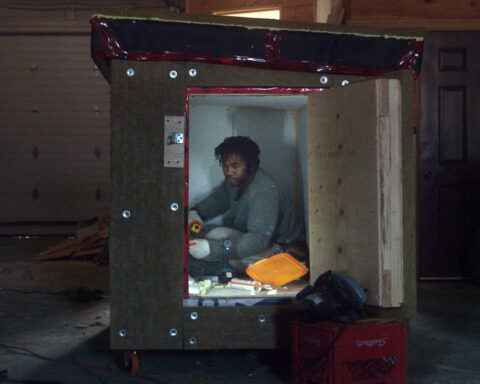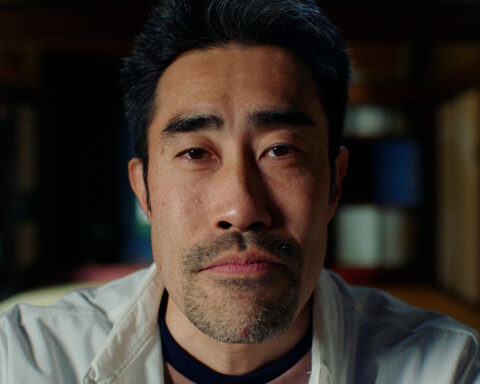Love Child
(Denmark, 112 min)
Dir. Eva Mulvad
Two of the biggest issues in the world, border crossings and the fate of refugees, are at the heart of Love Child, Danish director Eva Mulvad’s new doc. Iranian teachers Sahand and Leila have, in a way, crossed two borders. They have transgressed the law in Iran, breaking the border between married couples by having a child, Mani, out of wedlock. That causes them to leave their country for Turkey in 2012, out of fear that the authorities will figure out Leila’s husband isn’t Mani’s father. The penalty for adultery in Iran is death for the man and stoning to death for the woman, not a fate that anyone would want to endure.
Love Child begins frantically as the three leave Iran; Sahand says he isn’t sure if he will live or die in the next twenty-four hours. Leila calls her mother when she arrives in Turkey and is overcome with emotion while talking to her; Sahand is similarly tearful as he takes stock at what they’ve done. Not to be outdone, Mani throws a huge temper tantrum in front of Mulvad’s camera as he slowly realizes that he can’t go home—and that his “uncle” Sahand is his real father.
Worse luck follows as the couple begins to understand that they’re not going to be priorities in terms of refugees. Turkey is being overwhelmed with Syrians fleeing their civil war, a condition that hasn’t changed since 2012.
The pace slows down after the opening with Mulvad quietly following the Iranian family through the ups and downs of the refugee system. Their applications to the United Nations Commissioner for Refugees (UNHCR) take years to be adjudicated. Making matters more complicated are the necessity for them to prove Mani’s parentage and, its inevitable corollary, that Leila and Sahand have to be married to leave together. After DNA tests prove that Sahand is Mani’s father (to a 99.99% chance), the UNHCR still reject them. Another frantic sequence occurs quite late in the film when Sahand and Leila have to jump through diplomatic hoops, including entering the Iranian embassy, to get the proper papers to get married.
Mulvad hangs steady with Leila, Sahand and Mani, recording birthdays, arguments and reconciliations. It’s clear that Sahand and Leila love each other but that tension has entered into their relationship caused by the long wait they’re enduring in Turkey. Happily, their situation begins to improve, with Leila and Sahand eventually securing positions as teachers. They find better housing and develop some friends. But the cost of being in exile is shown repeatedly in the film, perhaps most movingly when Leila shows Mani shots of her family’s life in Iran. The youngster will never experience the warmth of his mother’s family unless politics change radically in their homeland.
Mulvad’s film is a classic verité film, with intimate footage abounding. Sahand and Leila clearly trust Mulvad and that gives the film a depth that docs don’t always achieve. This is at heart an issue-based film and though Leila and Sahand and Mani are making the best of it in Turkey, they are victims of a system that denies them the right to go where they want to be. And where would that be? Early on Leila expresses a desire to come to Canada. Wouldn’t that be a happy ending?











